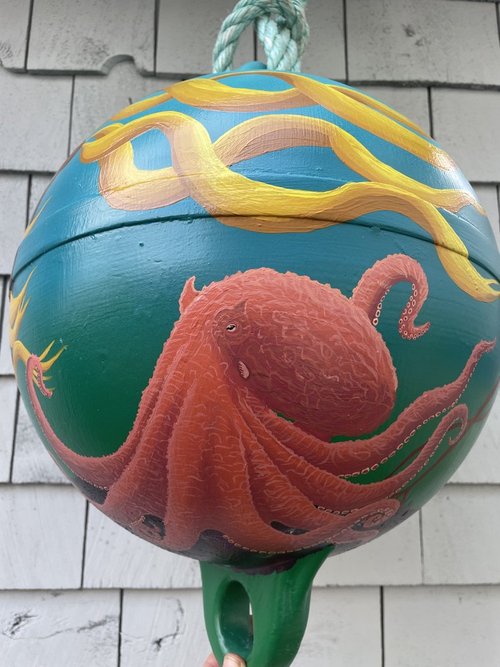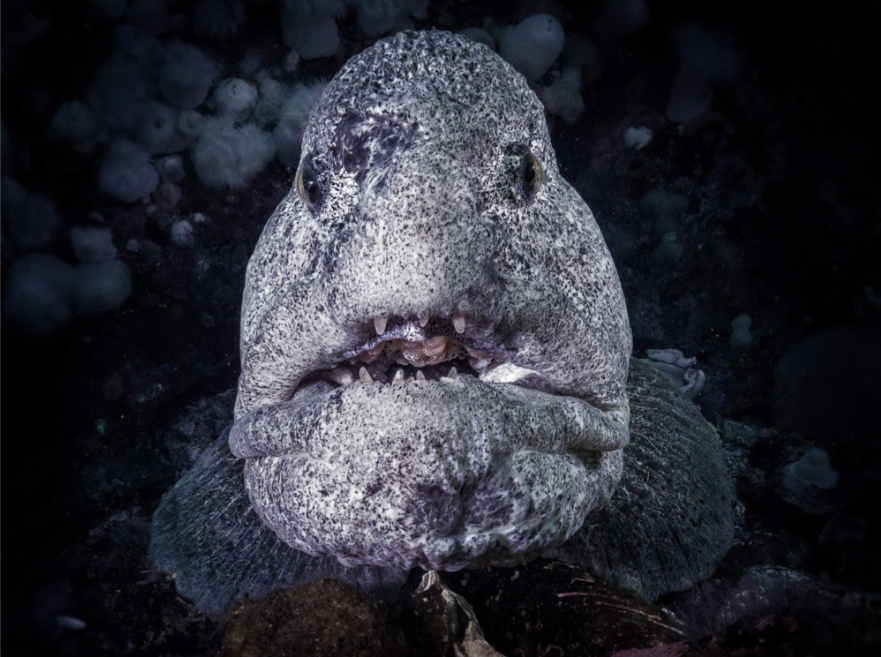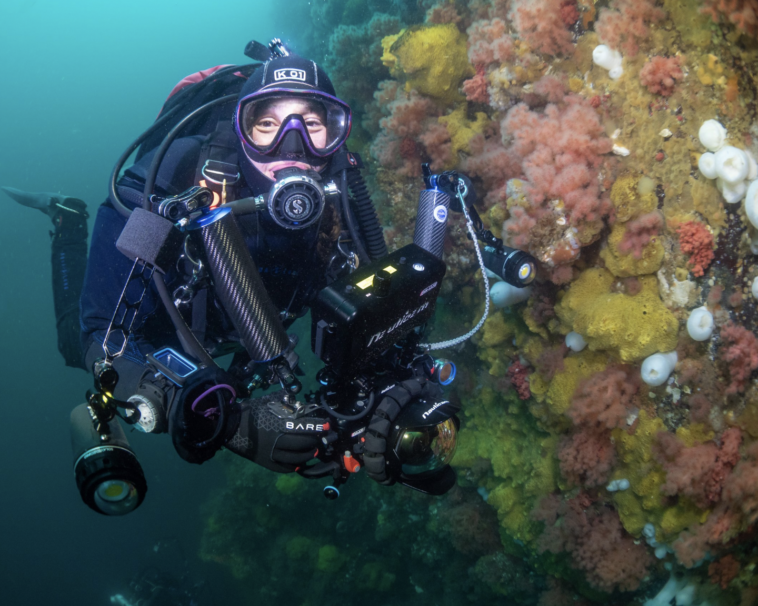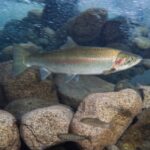You could call Tiare Boyes a coastal triple threat. This second-generation BC halibut fisher is also a diver and a skilled artist known for championing sustainable harvesting amongst young fishers like herself. In this exclusive interview, recorded at the BC Young Fisherman’s Network Gathering in Nanaimo last month, Boyes shares how she intertwined her love for being out on a fishing boat with her passion for art.
“I love fish, both on my plate and in the ocean. As a fisherman, I want to continue to work on the ocean, and I think they can be harvested in a sustainable way.”
Tiare Boyes
“I love fish, both on my plate and in the ocean,” she says laughing. “As a fisherman, I want to continue to work on the ocean,” she says, “and I think they can be harvested in a sustainable way.”
Growing up on her family’s fishing boat, Boyes’ connection to the sea runs deep. From her early days aboard a vessel, she developed a profound appreciation for marine life and the environment. Her journey took a creative turn as she started collecting and painting discarded fishing buoys, transforming them into vibrant works of art. What began as a hobby evolved into a part-time job, with Boyes donating a portion of her proceeds to local marine wildlife charities, depending on the species depicted on the buoy.

She is also a skilled commercial diver, with a side gig in documentary wildlife film work and underwater photography. She has worked on productions for the BBC, Netflix, and Canada Wild, to name a few – and if that weren’t enough – she’s also a Fellow in the prestigious Royal Canadian Geographical Society.

When asked if she had any advice for aspiring young fishermen looking to break into the industry, Boyes recognizes it isn’t easy, but highlights the importance of engagement and networking within the fishing community, on and off the docks. “Show up to meetings, walk the docks, meet people,” she advises, to build those crucial relationships with other fishers.
“We need to take accountability for our actions on land and our actions at sea.”
Tiare Boyes
She takes pride in her involvement in the wild Pacific halibut fishery, one of the world’s most rigorously monitored fisheries with Marine Stewardship Council certification. She underscores the intimate connection between those who harvest resources and the ecosystem itself. They have a unique perspective to “recognize that our impact on land directly affects our neighbours in the sea,” she tells us. “So we need to take accountability for our actions on land and our actions at sea.”
Tiare Boyes is part of a new generation of fishers charting a course toward a more sustainable future for marine ecosystems and coastal communities. But she openly acknowledges the industry has some challenges ahead. “We can always be better, and we should never stay still,” she comments. “We should always be moving towards a more sustainable future.”
To see more of Tiare’s work or purchase a one-of-a-kind buoy, visit her website: https://www.tiareboyes.com.




